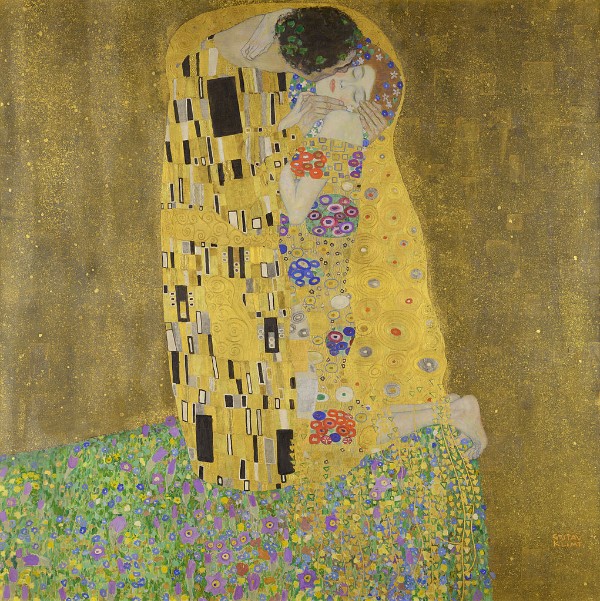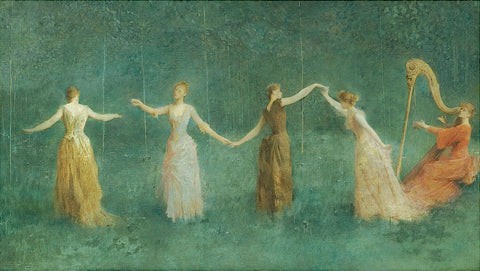Born on 30 December 1865 in Bombay, what today is Mumbai, India, Rudyard Kipling is remembered for his poems and stories of British soldiers in India, and tales for children. Incredibly popular in the late 19th and early 20th century, he received the Nobel Prize in Literature in 1907. Kipling was the first English-language writer to receive the prize, and at 41, is its youngest recipient to date.
Percy Grainger: Kipling Jungle Book Cycle “The fall of the stone” (Polyphony; The Polyphony Orchestra; Stephen Layton, cond.)
Changing Reputations
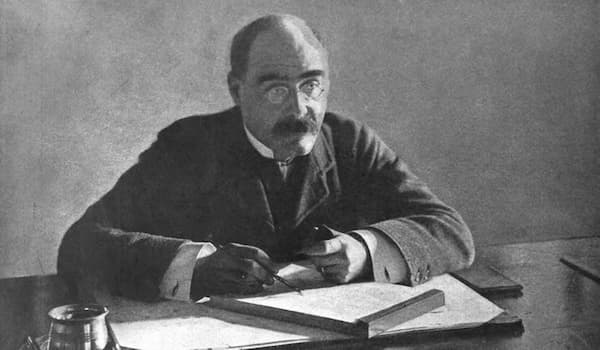
Rudyard Kipling
Kipling’s reputation as a serious writer subsequently suffered because he was being viewed as a jingoistic imperialist. Although he inspired passionate disagreement, his place in literature and cultural history is far from settled. A scholar writes, “as the age of European empires recedes, Kipling is recognised as an incomparable, if controversial, interpreter of how empire was experienced.”
His critical reputation, seen as a prejudicial celebration of British imperialism, was paradoxically rekindled by postcolonial critics, who saw his work as “both symptomatic and critical of imperialist attitudes.” High-flying literary and social criticism aside, Kipling’s collection of stories in his 1894 publication The Jungle Book has remained highly popular, particularly in countless adaptations for film, various other media and the setting of his poetry to music.
Percy Grainger: Kipling Jungle Book Cycle “Morning song in the jungle” (Polyphony; The Polyphony Orchestra; Stephen Layton, cond.)
One moment past our bodies cast
No shadow on the plain;
Now clear and black they stride our track,
And we run home again.
In morning-hush, each rock and bush
Stands hard, and high, and raw:
Then give the Call: ‘Good rest to all
That keep the Jungle Law!’
Now horn and pelt our people melt
In covert to abide;
Now crouched and still, to cave and hill
Our Jungle Barons glide.
Now, stark and plain, Man’s oxen strain,
That draw the new-yoked plough;
Now striped and dread the dawn is red
Above the lit talao.
Ho! Get to lair! The sun’s aflare
Behind the breathing grass:
And creaking through the young bamboo
The warning whispers pass.
By day made strange, the woods we range
With blinking eyes we scan;
While down the skies the wild duck cries:
‘The Day—the Day to Man!’
The dew is dried that drenched our hide,
Or washed about our way;
And where we drank, the puddled bank
Is crisping into clay.
The traitor Dark gives up each mark
Of stretched or hooded claw:
Then hear the Call: ‘Good rest to all
That keep the Jungle Law!’
Percy Grainger and Rudyard Kipling
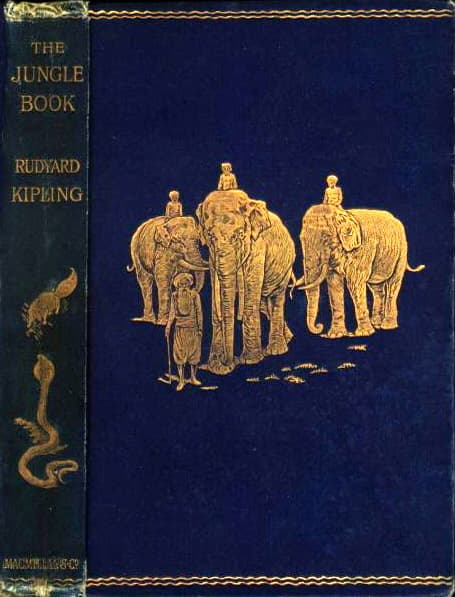
Rudyard Kipling’s The Jungle Book First Edition
The young Australian composer Percy Grainger first came across Kipling’s poetry during his study at the Conservatory of Music in Frankfurt. Of all the authors and poets he encountered, none had more of a profound effect on his development as a composer than Kipling. The English composer Cyril Scott met Grainger in 1916 and wrote:
“He began to write in whole-tone scales without knowing of Debussy’s existence. At sixteen he had in fact developed a style, and that style was the outcome of a discovery, and a literary discovery, not a musical one; for he had discovered Rudyard Kipling, and, from that writer, he imbibed an essence and translated it into music.
Percy Grainger: Kipling Jungle Book Cycle “Night song in the jungle” (Polyphony; The Polyphony Orchestra; Stephen Layton, cond.)
Now Chil the Kite brings home the night
That Mang the Bat sets free—
The herds are shut in byre and hut,
For loosed till dawn are we.
This is the hour of pride and power,
Talon and tush and claw.
Oh, hear the call!—Good hunting all
That keep the Jungle Law!
Musical Settings of Kipling
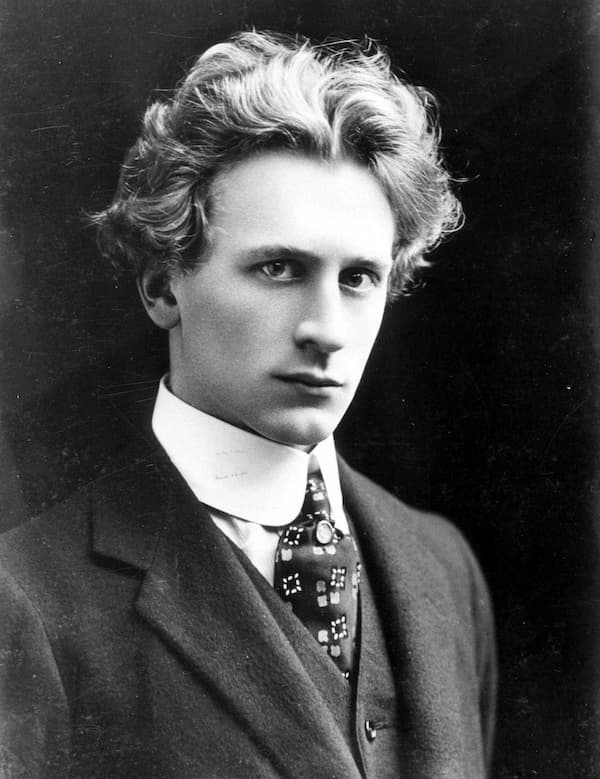
Percy Grainger
Grainger started work on roughly fifty works inspired by the poetry of Kipling, eventually completing thirty-three. Grainger considered his “Jungle Book” setting the most characteristic and significant amongst his compositional output. As he subsequently explained:
“I developed my mature harmonic style—that is to say, harmony in unresolved discords … such a procedure was unknown at that time and must be considered an Australian contribution to musical progress. So through that parcel of books my father sent me, I became what I have remained ever since, a composer whose musical output was based on patriotism and racial consciousness.”
Percy Grainger: Kipling Jungle Book Cycle “The Inuit” (Polyphony; The Polyphony Orchestra; Stephen Layton, cond.)
The People of the Eastern Ice, they are melting like the snow—
They beg for coffee and sugar; they go where the white men go.
The People of the Western Ice, they learn to steal and fight:
They sell their furs to the trading-post: they sell their soul to the white.
The People of the Southern Ice, they trade with the whaler’s crew;
Their women have many ribbons, but their tents are torn and few.
But the People of the Elder Ice, beyond the white man’s ken—
Their spears are made of the narwhal horn, and they are the last of Men!
Jungle Book Cycle
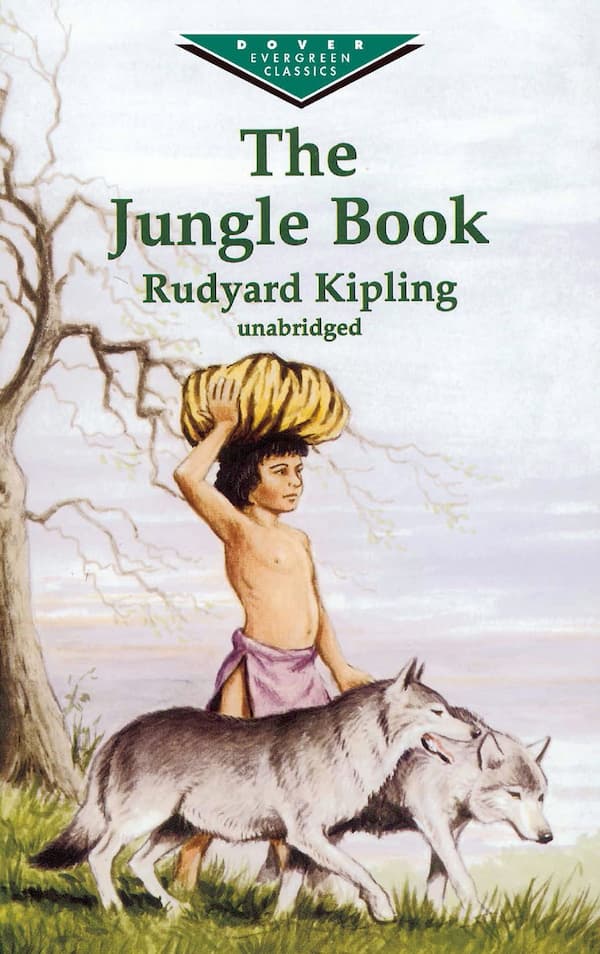
Rudyard Kipling’s The Jungle Book
Grainger carefully selected poems which resonated with the tragic elements of life. He was looking for a sympathetic voice, and despite the fact that Kipling had been called the poet of Imperialism, he primarily selected poems associated with the tragedy related to Imperialism rather than with its splendour.
The Jungle Book cycle was fifty-nine years in the making. He first composed three settings in 1899 and added additional sections over the next decade. As he explained, “These settings were written under the strong spell cast upon me by Kipling’s Jungle verses (the passion for the face of virgin nature, the intimate sympathy with the wild creatures that roam the jungle, the revolt against civilisation…” And he subsequently added, “ My Kipling’s Jungle Book Cycle, begun in 1898 and finished in 1947, was composed as a protest against civilisation.”
Percy Grainger: Kipling Jungle Book Cycle “The beaches of Lukannon” (Polyphony; The Polyphony Orchestra; Stephen Layton, cond.)
I met my mates in the morning (and oh, but I am old!)
Where roaring on the ledges the summer ground-swell rolled;
I heard them lift the chorus that drowned the breakers’ song—
The beaches of Lukannon—two million voices strong!
The song of pleasant stations beside the salt lagoons,
The song of blowing squadrons that shuffled down the dunes,
The song of midnight dances that churned the sea to flame—
The beaches of Lukannon—before the sealers came!
I met my mates in the morning, a broken, scattered band.
Men shoot us in the water and club us on the land;
Men drive us to the Salt House like silly sheep and tame,
And still we sing Lukannon—before the sealers came.
Publication
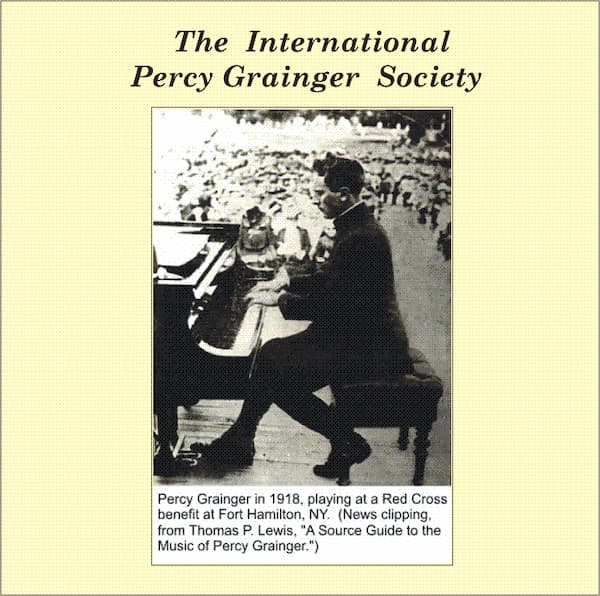
Percy Grainger, 1918
The cycle was eventually published in 1958, with Grainger writing to his publisher, “I AM SO GRATEFUL TO PUBLISH MY CYCLE COMPLETE.” The work did not garner much attention, and Grainger died a mere three years later. It took another 21 years before the work received its British premiere at the 1982 Aldeburgh Music Festival.
The complete cycle consists of eleven movements, five for choir alone, of which three are for men’s voices only. The remaining six use instrumental accompaniment, and the poems represent a mankind-less world of the animal kingdom, with Kipling looking at the world through the eyes of wild beasts.
Percy Grainger: Kipling Jungle Book Cycle “Red Dog” (Polyphony; The Polyphony Orchestra; Stephen Layton, cond.)
For our white and our excellent nights—for the nights of swift running,
Fair ranging, far-seeing, good hunting, sure cunning!
For the smells of the dawning, untainted, ere dew has departed!
For the rush through the mist, and the quarry blind-started!
For the cry of our mates when the sambhur has wheeled and is standing at bay,
For the risk and the riot of night! For the sleep at the lair-mouth by day—
It is met, and we go to the fight. Bay! O Bay!
Percy Grainger: Kipling Jungle Book Cycle “The peora hunt” (Polyphony; The Polyphony Orchestra; Stephen Layton, cond.)
Mowgli

John Charles Dollman: Mowgli Made Leader of the Bandar-Log
The feral boy from the Pench area in Seoni, Madhya Pradesh, India called Mowgli is a fictional character and the protagonist of Kipling’s “Jungle Book” stories. The character was inspired by various accounts in which wild children in India had been raised by wolves.
According to a biographer, young Grainger felt himself to be something of a Mowgli figure. He strongly identifies with the character as the only son, where the subject matter is a boy’s dreams of life amongst the wolves and his longing to learn if these dreams can come true.
As the dawn was breaking the Sambhur belled
Once, twice and again!
And a doe leaped up, and a doe leaped up
From the pond in the wood where the wild deer sup.
This I, scouting alone, beheld,
Once, twice and again!
As the dawn was breaking the Sambhur belled
Once, twice and again!
And a wolf stole back, and a wolf stole back
To carry the word to the waiting pack,
And we sought and we found and we bayed on his track
Once, twice and again!
As the dawn was breaking the Wolf-Pack yelled
Once, twice and again!
Feet in the Jungle that leave no mark!
Eyes that can see in the dark—the dark!
Tongue—give tongue to it! Hark! Oh, Hark!
Once, twice and again!
Percy Grainger: Kipling Jungle Book Cycle “Hunting song of the Seeonee pack” (Polyphony; The Polyphony Orchestra; Stephen Layton, cond.)
Renouncing Civilization
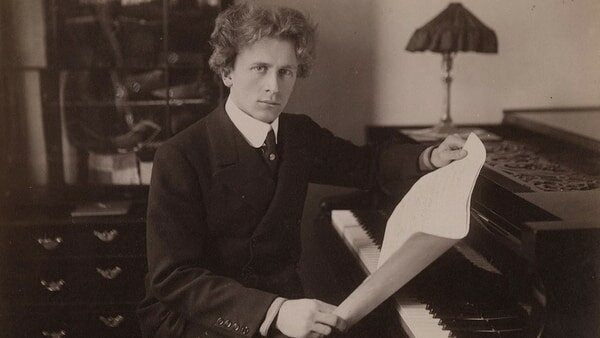
Percy Grainger
Grainger never considered himself especially gifted as an artist. “To sing, make music, paint, draw, carve and dance is natural to all humanity,” he writes, “and it is only a lopsided civilisation, made on “specialisation” that scares the “tame cats” of humanity into abandoning their natural right to an all-round many-sided life.”
In the Kipling poems, he sensed the strongest and most pronounced root emotion of his life. “The love of savagery, the belief that savages are sweeter and more peaceable and artistic than civilised people, the belief that primitiveness is purity and civilisation filthy corruption, the agony of seeing civilisation advance and pass its blighting hand over the world.”
Percy Grainger: Kipling Jungle Book Cycle “Tiger! Tiger” (Polyphony; The Polyphony Orchestra; Stephen Layton, cond.)
What of the hunting, hunter bold?
Brother, the watch was long and cold.
What of the quarry ye went to kill?
Brother, he crops in the Jungle still.
Where is the power that made your pride?
Brother, it ebbs from my flank and side.
Where is the haste that ye hurry by?
Brother, I go to my lair—to die!
Percy Grainger: Kipling Jungle Book Cycle “The only son” (Polyphony; The Polyphony Orchestra; Stephen Layton, cond.)
Conclusion
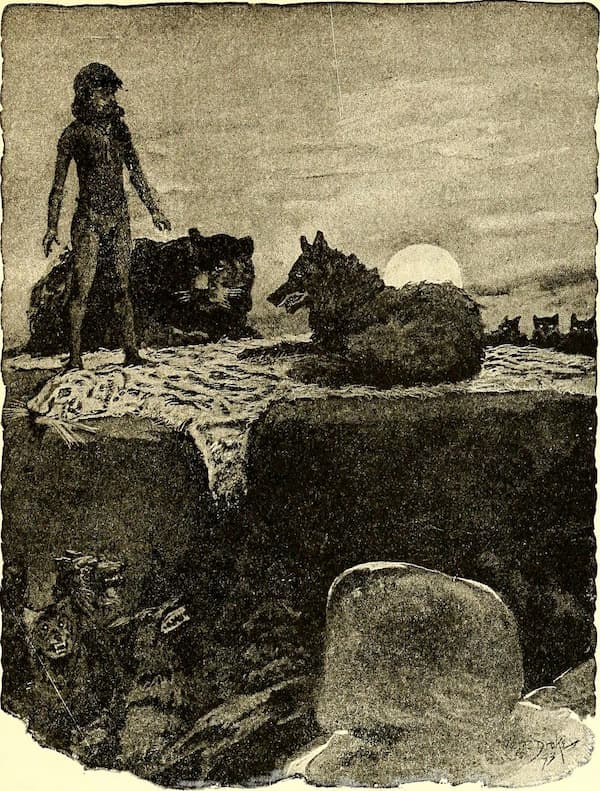
The Jungle Book, 1894
Kipling’s Jungle Book was central to Grainger’s creative life. Each work in the cycle “displays specific compositional techniques and a homogenous unifying thread, despite the fact that individual movements of the cycle were not composed in order.”
Grainger writes, “My effort, even in my young days, was to wrench the listener’s heart with my chords. It is a subtle matter for music not to be made agonising merely by sharp discords any more than literature is made agonising by crude events. It is the contrast between the sweet and the harsh that is heart-rending.”
I will let loose against you the fleet-footed vines—
I will call in the Jungle to stamp out your lines!
The roofs shall fade before it,
The house-beams shall fall;
And the Karela, the bitter Karela,
Shall cover it all!
In the gates of these your councils my people shall sing.
In the doors of these your garners the Bat-folk shall cling;
And the snake shall be your watchman,
By a hearthstone unswept;
For the Karela, the bitter Karela,
Shall fruit where ye slept!
Ye shall not see my strikers; ye shall hear them and guess;
By night, before the moon-rise, I will send for my cess,
And the wolf shall be your herdsman
By a landmark removed;
For the Karela, the bitter Karela,
Shall seed where ye loved!
I will reap your fields before you at the hands of a host;
Ye shall glean behind my reapers for the bread that is lost;
And the deer shall be your oxen
On a headland untilled;
For the Karela, the bitter Karela,
Shall leaf where ye build!
I have untied against you the club-footed vines,
I have sent in the Jungle to swamp out your lines.
The trees—the trees are on you!
The house-beams shall fall;
And the Karela, the bitter Karela,
Shall cover you all!
For more of the best in classical music, sign up for our E-Newsletter
Percy Grainger: Kipling Jungle Book Cycle “Mowgli’s song against people” (Polyphony; The Polyphony Orchestra; Stephen Layton, cond.)


